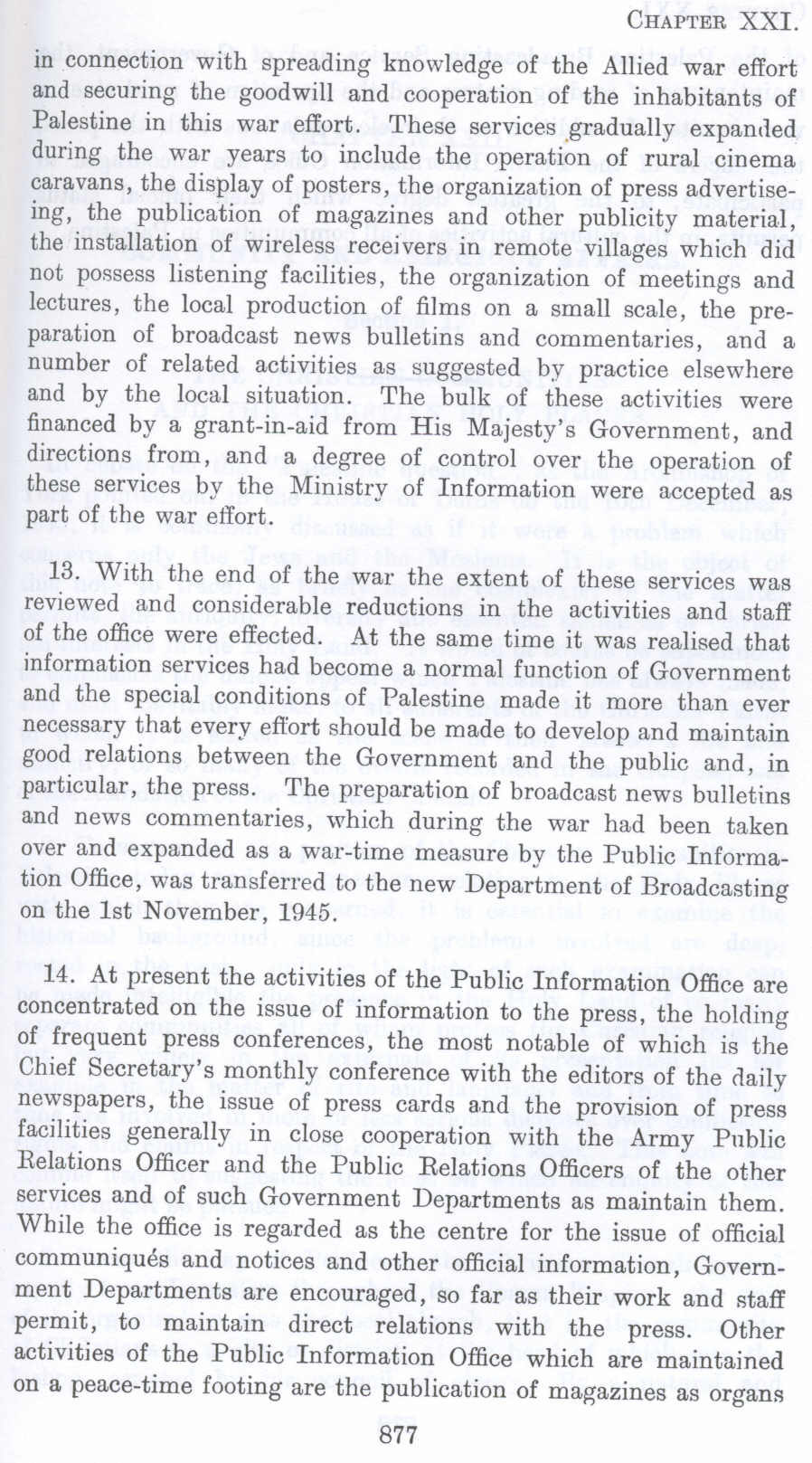| Prev | Next |  |
| Prev | Next |
| PalestineRemembered | About Us | Oral History | العربية | |
| Pictures | Zionist FAQs | Haavara | Maps | |
| Search |
| Camps |
| Districts |
| Acre |
| Baysan |
| Beersheba |
| Bethlehem |
| Gaza |
| Haifa |
| Hebron |
| Jaffa |
| Jericho |
| Jerusalem |
| Jinin |
| Nablus |
| Nazareth |
| Ramallah |
| al-Ramla |
| Safad |
| Tiberias |
| Tulkarm |
| Donate |
| Contact |
| Profile |
| Videos |
British Mandate: A Survey of Palestine: Volume II - Page 877 |
Disclaimer
The above documents, article, interviews, movies, podcasts, or stories reflects solely the research and opinions of its authors. PalestineRemembered.com makes its best effort to validate its contents.


Post Your Comment
*It should be NOTED that your email address won't be shared, and all communications between members will be routed via the website's mail server.
in connection with spreading knowledge of the Allied war effort and securing the goodwill and cooperation of the inhabitants of Palestine in this war effort. These services ,gradually expanded during the war years to include the operation of rural cinema caravans, the display of posters, the organization of press advertiseing, the publication of magazines and other publicity material, the installation of wireless receivers in remote villages which did not possess listening facilities, the organization of meetings and lectures, the local production of films on a small scale, the preparation of broadcast news bulletins and commentaries, and a number of related activities as suggested by practice elsewhere and by the local situation. The bulk of these activities were financed by a grant-in-aid from His Majesty's Government, and directions from, and a degree of control over the operation of these services by the Ministry of Information were accepted as part of the war effort.
13. With the end of the war the extent of these services was reviewed and considerable reductions in the activities and staff of the office were effected. At the same time it was realised that information services had become a normal function of Government and the special conditions of Palestine made it more than ever necessary that every effort should be made to develop and maintain good relations between the Government and the public and, in particular, the press. The preparation of broadcast news bulletins and news commentaries, which during the war had been taken over and expanded as a war-time measure by the Public Information Office, was transferred to the new Department of Broadcasting on the 1st November, 1945.
14. At present the activities of the Public Information Office are concentrated on the issue of information to the press, the holding of frequent press conferences, the most notable of which is the Chief Secretary's monthly conference with the editors of the daily newspapers, the issue of press cards and the provision of press facilities generally in close cooperation with the Army Public Relations Officer and the Public Relations Officers of the other services and of such Government Departments as maintain them. While the office is regarded as the centre for the issue of official communiques and notices and other official information, Government Departments are encouraged, so far as their work and staff permit, to maintain direct relations with the press. Other activities of the Public Information Office which are maintained on a peace-time footing are the publication of magazines as organs
877